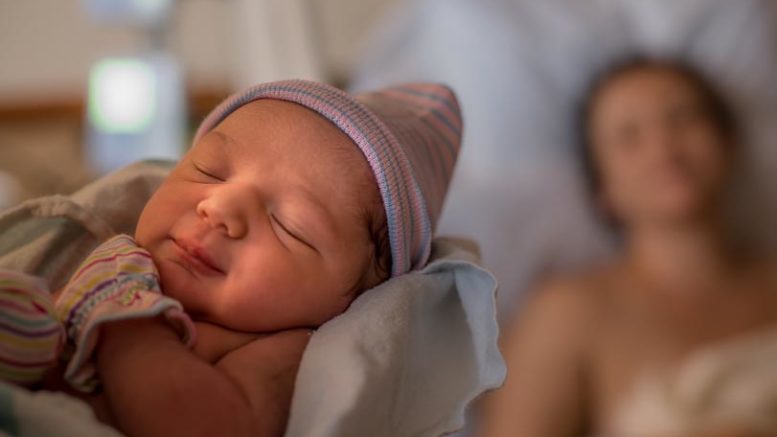Birth defects and birth injuries are two different things. A birth injury is caused by something that went wrong during delivery. A birth defect means harm that happened to the baby prior to delivery and birth.
Birth Injuries
Birth injuries occur during the labor and delivery process and are typically the result of a negligent nurse or doctor on an otherwise healthy baby.
Birth Injury Causes
Vacuum Assisted Delivery or Forceps: Bruises from the doctor using different birthing instruments are some of the most common birth injuries. If the doctor is too forceful with the equipment, then it could be considered negligence, especially if there was brain or nerve damage in the process.
Prolonged Labor or Delayed Delivery: If, during delivery, the doctor doesn’t monitor the baby for fetal distress and the baby suffers a lack of oxygen, it can cause permanent disabilities, serious injury, or death.
Common birth injuries include head trauma, brain damage, cerebral palsy, clavicle fractures or other broken bones, shoulder dystocia, or brachial plexus.
Birth Defects
Birth defects are things that can happen during pregnancy and begin to affect the fetus while in utero. These defects can have long-lasting and serious effects on life, including mental and physical disabilities. While some birth defects can be detected before birth, others are only ones that can be dealt with after birth. Embryos and fetuses are vulnerable to dangerous environmental factors at some specific stages of development. During the first 60 days, a baby’s major organs are developing. This is a time period when the embryo can be sensitive to many different factors. During weeks five to seven, the baby develops the central nervous system and a birth defect that develops during this time can be more serious.
Birth Defect Causes
A birth defect can be caused by something genetic or be caused by the actions of the mother, including drug use, drinking, or smoking. Certain prescription medications can also cause birth defects. Many birth defects can also be caused by a mix of genetic circumstances and environmental factors. However, about 70% of birth defects don’t have a known cause. If birth defects are caused by a genetic factor, then there won’t be any legal grounds to file a claim. If it can be proven that a birth defect was caused by a doctor or someone else, then you could be entitled to compensation.

Common birth defects include sickle cell disease, clubfoot, cleft palate, down syndrome, spina bifida, and congenital heart defects. Some treatments or surgeries can help some birth defects, but some can’t be treated.
Many birth defects can be preventable, and many do still go unnoticed. When the correct screening processes are in place then doctors should be able to identify problems and take some early action to ensure the best possible outcome, if there is one, for that type of birth effect.
Not every health problem is going to have a cause. If your child has suffered a birth injury because of a negligent act, then there are steps you can take to ensure compensation.
Common Types of Medical Malpractice for Birth Injury Cases
Medical malpractice happens when a doctor or other medical professional causes injury to your or the baby. This can include an incorrect diagnosis or failure to diagnose, misunderstanding lab results, giving improper dosages or medication, making medical or surgical errors, conducting an unnecessary surgery, prematurely discharging you or the baby from care, or providing poor or incomplete follow-up care. In order to have a medical malpractice claim, you have to prove the provider was in fact negligent, it was the negligence that caused the injury, and there are financial damages from the injury.
Steps to Take if Your Child Is Born with a Medical Condition
If your child has medical concerns, then seek the advice of a doctor who can help you determine whether or not the condition is due to a birth injury or birth defect. If it’s a birth defect, then you likely aren’t going to be able to file for a medical malpractice claim since it was likely not caused by the negligence of the doctor. However, the exemption could be if a doctor prescribed you medication during pregnancy and it’s related or something that should have been detected during routine pregnancy tests. Even then, there are some conditions that can’t be detected until a baby is born or not even until the child is older. There can even be cases where an adult is diagnosed with a condition that is related to a birth defect, but it doesn’t show up until well into adulthood. If your child suffers a birth injury, then you will need to know whether the injury is due to medical malpractice.
If birth injuries are the result of medical malpractice, then you are entitled to compensation. In order to start the process, get the opinion of a physician separate from the hospital that managed your pregnancy and baby’s birth. Be sure to keep records of every treatment, procedure, medication, and conversation you have with doctors and pediatric specialists. These records are very important for evidence. You should also speak with a birth injury lawyer near you. These cases can be complex, but compensation is necessary. Your child could have expensive medical treatments or a condition that requires ongoing care and this can come with hefty financial costs.
